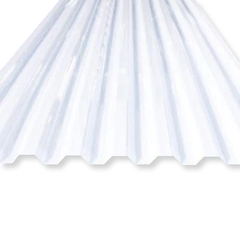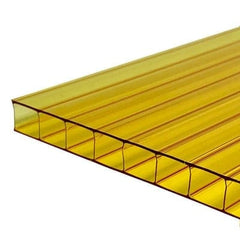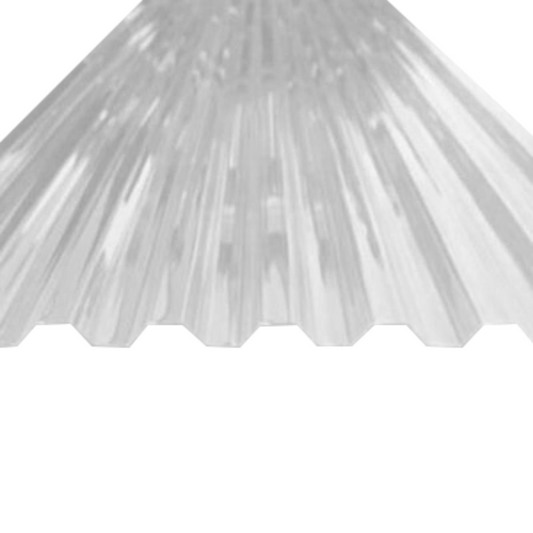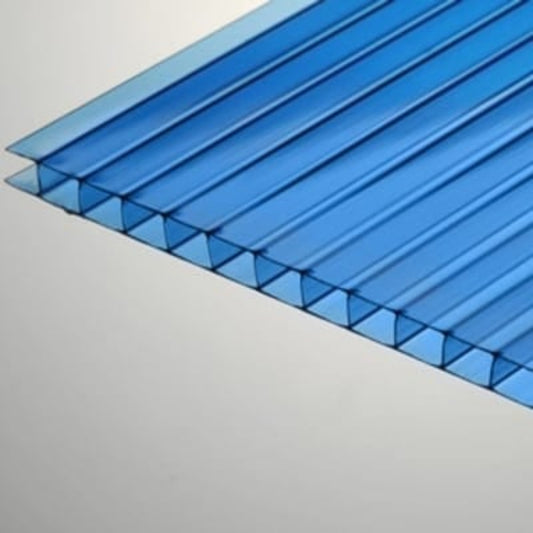-
Twinwall Polycarbonate Sheet - All Sizes
Vendor:Roofing4US PolycarbonatefromRegular price $41.78Sale price $41.78 Regular priceUnit price per
Greenhouse panels | Greenhouse | Sheets | Panels | Greenhouses
Discover the ideal solution for your greenhouse construction and repair needs with our premium Greenhouse Panels collection. Whether you're a hobbyist gardener or managing a commercial horticulture space, these high-performance polycarbonate sheets provide the perfect balance of strength, clarity, and insulation to help your plants thrive year-round.
What Are Greenhouse Panels?
Greenhouse panels are lightweight, durable sheets made from polycarbonate, designed to create a controlled environment for growing plants. Unlike traditional glass, these panels offer enhanced strength, insulation, and UV protection, making them ideal for both residential and commercial greenhouse structures.
Why Choose Roofing4US Greenhouses Panel?
Our panels are crafted from twinwall or multiwall polycarbonate, designed to let in ample natural light while providing excellent thermal insulation. Unlike traditional glass, these sheets are virtually unbreakable, making them a safe and long-lasting choice for greenhouses, cold frames, skylights, and more.
Key Features
- UV-Protected Surface – Prevents yellowing and extends lifespan in outdoor use
- Lightweight but Strong – Easy to handle and install, yet impact-resistant
- Energy Efficient – Multiwall design helps retain heat and lower energy costs
- Versatile Applications – Perfect for greenhouses, carports, patios, and pergolas
- Weather Resistant – Performs reliably through snow, rain, wind, and sun exposure
Designed for Plant Health & Growth
Our panels allow just the right amount of light transmission needed for photosynthesis while filtering out harmful UV rays. This creates a stable and controlled growing environment, crucial for delicate plants and seedlings.
Easy Installation with Long-Term Benefits
Greenhouse panels from Roofing4US are engineered for straightforward installation, whether you're building a new frame or retrofitting an old one. With minimal maintenance, they continue delivering clarity and insulation season after season.
Benefits of Polycarbonate Greenhouse Panels
- Excellent Light Transmission – Greenhouse sheets deliver optimal sunlight for plant growth
- Superior Thermal Insulation – greenhouse polycarbonate panels have multiwall designs that help maintain consistent internal temperatures
- UV Protection – Shields plants and panels from harmful rays, reducing yellowing and damage
- Impact-Resistant – Far more durable than glass, offering safety and longevity
- Lightweight & Easy to Install – Perfect for DIY and professional greenhouse builds
- Energy-Efficient – Helps reduce heating costs during colder months
- Low Maintenance – Resists mould, mildew, and general wear in outdoor conditions
Applications of Greenhouse Covering
- Domestic greenhouses and conservatories
- Commercial horticulture and nursery buildings
- Cold frames and seedling shelters
- Covered walkways and garden structures
- Patio and pergola roofing
- Skylights in sheds or garden offices
Why Choose Roofing4US?
- Top Quality Materials – Sourced from trusted manufacturers with proven performance, great ratings, and reviews
- Wide Range of Sizes – From 4mm to 16mm panels, suitable for any build
- Fast Shipping Across the US – Efficient delivery right to your doorstep
- Expert Support – Knowledgeable team ready to assist with your project
- Competitive Prices – Exceptional value for high-performance polycarbonate solutions

 Rated Excellent
Rated Excellent




